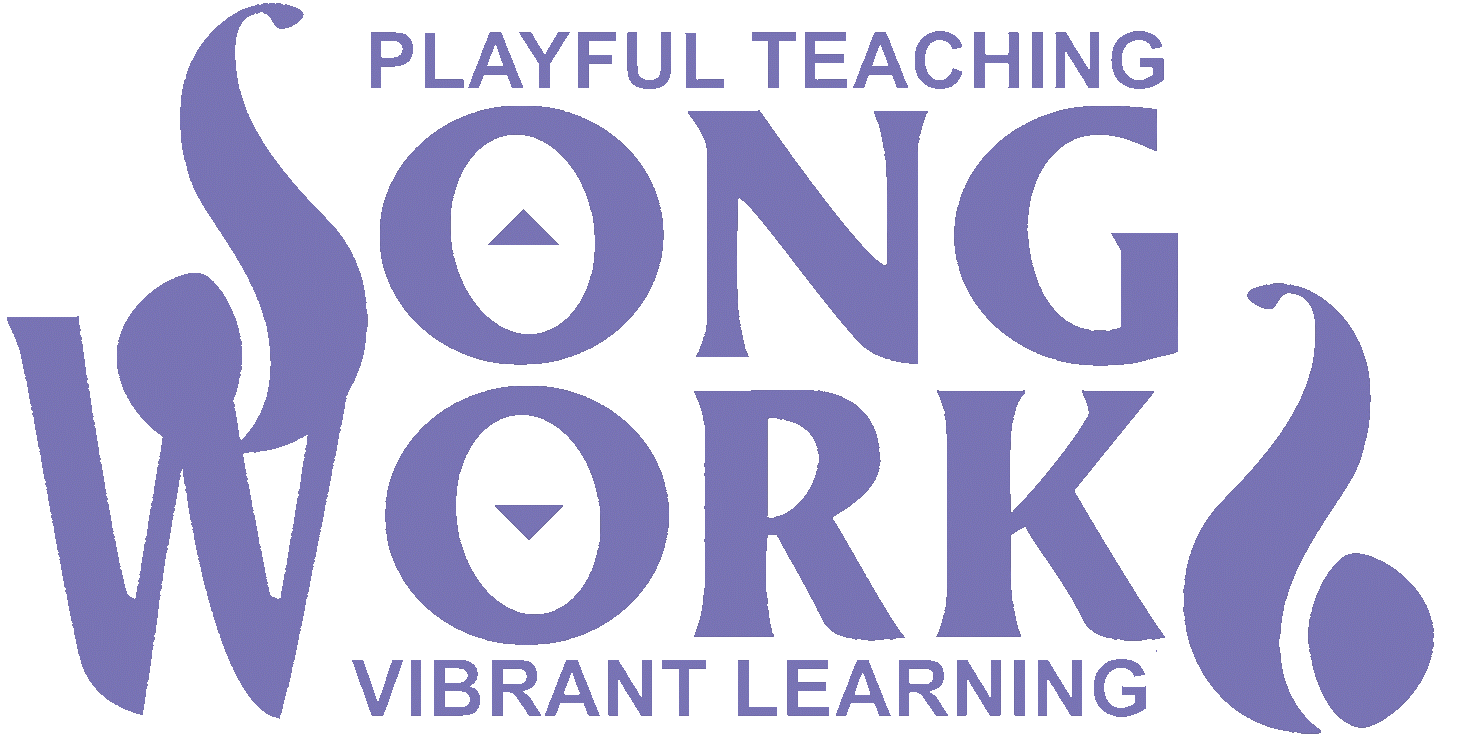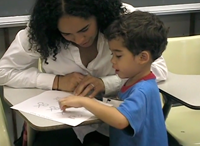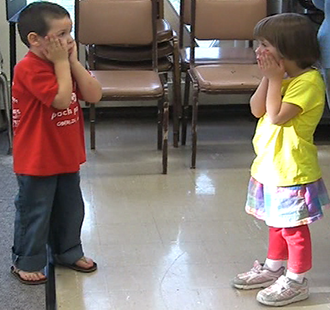
Links to the Videos
Quick Search
About MusicPlay and SongWorks
Voices from MusicPlay
Additional Links

Tenets of the MusicPlay Program
In MusicPlay, children’s voices and bodies are treated as their most prized musical instruments. In this highly naturalistic approach,
- the joy of making music,
- the community of playing together,
- the power of making choices,
- the insights from interacting with others, and
- the strengths of being the sound source for musicmaking,
ground children’s musical, personal, social, linguistic, physical, and cognitive learning and development. Listening is the basis for all we do.
The repertoire of MusicPlay is a mesh of folksongs, composed songs, masterworks, and nursery rhymes that offer opportunities for music learning. In many ways, the children determine the curriculum by their responsiveness to the activities and to each other. Throughout the classes, we proceed on a path that opens children to their own musical natures, that exposes them to songs, poems, instruments, and masterworks, that forges connections between them and the other children, that encourages their own music making, and that immerses them in opportunities to express themselves through music, language, movement, and social interaction.
As we sing and play together, children are bathed in sound. The pitch, intensity, and duration of sound, as well as its organization into chunks of language, melody, and rhythm prepare children for a lifetime of listening to, performing, and enjoying music.
SongWorks is the approach through which children are engaged in the activities of MusicPlay classes (See the Principles of SongWorks section). Described in detail in two books (SongWorks 1: Singing in the Education of Children and SongWorks 2: Singing from Sound to Symbol both written by Bennett & Bartholomew), this approach is based on a set of principles and practices intended to liberate teachers to use their own powers of observation, knowledge of teaching contexts, and creative use of activities to meet the needs of their own students/children. The SongWorks approach grew from a 20-year association (1970s and 1980s) with the pioneering Mary Helen Richards and her seminal work in “Education Through Music.”

